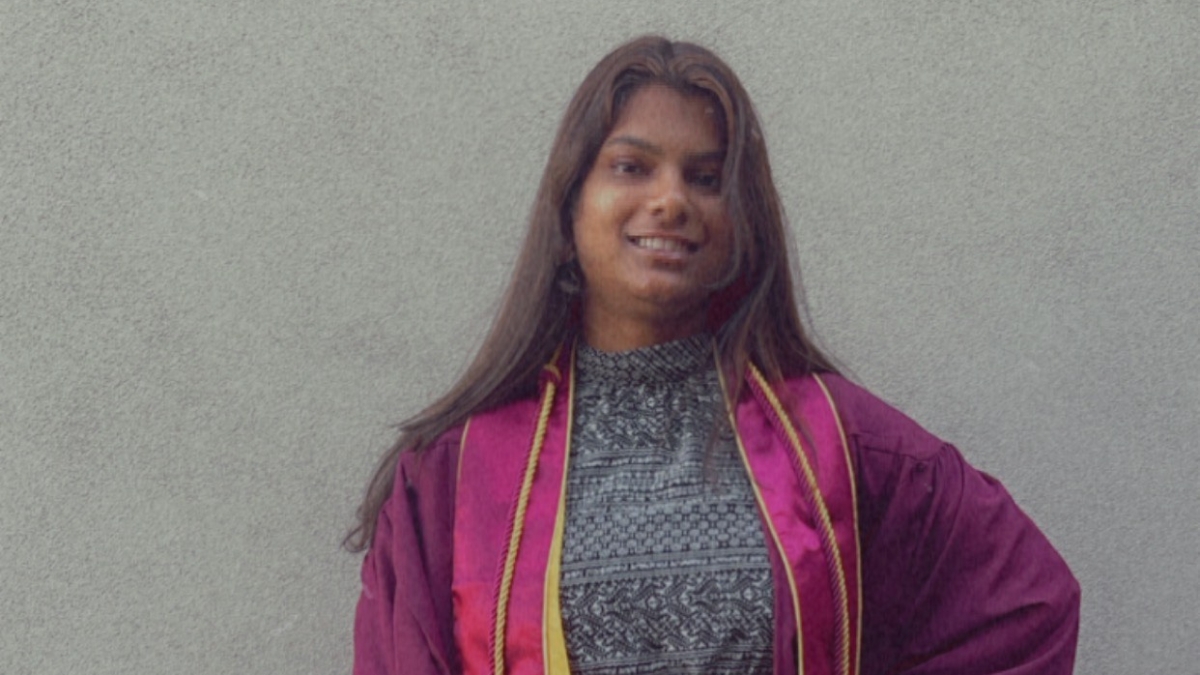Biochemistry graduate looks ahead to medical school and career helping others

Neha Yeturu is graduating with a bachelor's degree in biochemistry from ASU's School of Molecular Sciences. She hopes to attend medical school after graduation.
Editor’s note: This story is part of a series of profiles of notable fall 2023 graduates.
Neha Yeturu, graduating from Arizona State University's School of Molecular Sciences, looks to help others through medical school and exploring solutions to health care access.
While at ASU, Yeturu — originally from Portland, Oregon, and now living in Chandler, Arizona — learned the value of community and that great things can be achieved when working with others.
Learn more about her college journey below.
Question: What’s something you learned while at ASU — in the classroom or otherwise — that surprised you or changed your perspective?
Answer: One thing that I learned that really surprised me was how supportive people are. With my major and my future goal to get into medical school, I was very worried that I would be surrounded by people who were constantly trying to one-up each other in order to give themself a better shot, but I was pleasantly surprised to build a community of people that were willing to support me when I needed help and provide the encouragement that has driven me to be a better person.
Q: What was your favorite spot on campus, whether for studying, meeting friends or just thinking about life?
A: My favorite place on campus is Noble Library, where my friends and I used to spend a lot of time in a group study room trying and failing to get work done!
Q: Which professor taught you the most important lesson while at ASU?
A: One of the most important lessons I learned was from my Gen Chem II professor (Marcia Levitus), who taught me how important it is to build connections. My freshman year, we had a Discord server for the Gen Chem students since it was in the middle of the lockdown, and a very lively debate regarding water and if it was wet started up one day. Out of curiosity, I asked my professor this question to see what she would think, and I like to think that I made enough of an impression that I was asked to join her lab at the end of the semester. It's likely that had I not asked her that question regardless of how it might have seemed, I would not have left an impression in a fairly large class, and building those connections helped me land a spot in a lab much earlier than I had been expecting and also helped connect me to other opportunities down the road at ASU.
Q: Did you have any scholarships? If so, which ones?
A: I have the New American University–President's Award and the Sun Devil State Award. I am grateful for these scholarships because they allowed me to focus on my studies.
Q: What was your “aha” moment when you realized you wanted to study the field you majored in?
A: I'd originally majored in biochemistry because it fulfilled almost all of the requirements I would need in order to take the MCAT and apply for medical school. However, when I started taking my upper-division classes, I found the material really interesting and could connect to what I saw while I was in clinic, and that really solidified that I'd made the right choice for me.
Q: What’s the best piece of advice you’d give to those still in school?
A: Grades matter, especially if you're planning on grad school, but being a well-rounded person who knows how to take care of yourself is also incredibly important. A good balance between school and your personal life is incredibly important, and finding that balance and figuring out how to prioritize as well as what to prioritize at certain times is probably one of the most important things you can do.
Q: What are your plans after graduation?
A: I plan on going to medical school. I'm still in the middle of the cycle, so fingers crossed that I should hear back from schools soon!
Q: If someone gave you $40 million to solve one problem on our planet, what would you tackle?
A: If I had $40 million to solve one problem on the planet, I'd probably try to tackle medical resource availability. Working in a clinic that serves a large population of people who have to drive for hours and take whole days off work because they do not have adequate medical resources where they live has really opened my eyes to how privileged I am to be able to have all of those resources so close to me, as well as how negatively this issue impacts the people that live there.
More Science and technology

Breakthrough copper alloy achieves unprecedented high-temperature performance
A team of researchers from Arizona State University, the U.S. Army Research Laboratory, Lehigh University and Louisiana State…

4 ASU researchers named senior members of the National Academy of Inventors
The National Academy of Inventors recently named four Arizona State University researchers as senior members to the prestigious…

Transforming Arizona’s highways for a smoother drive
Imagine you’re driving down a smooth stretch of road. Your tires have firm traction. There are no potholes you need to swerve to…

